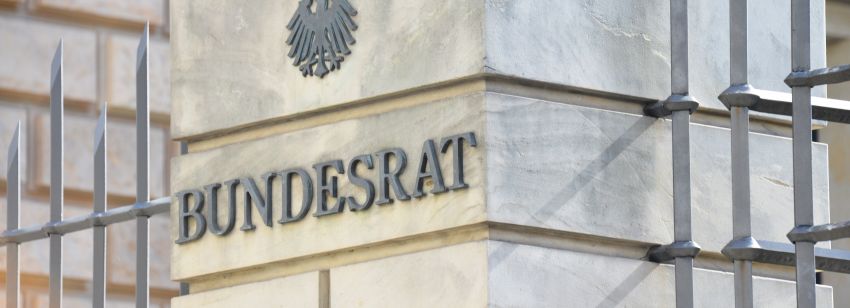Hope for the pharmaceutical industry?
Bundesrat censures FinStG draft
These were the Bundesrat's comments most relevant for pharmaceutical companies:
| Topic | Proposed change | Change since cabinet draft |
| Orphan drug privileges | The maximum annual sales threshold for the loss of the orphan drug privileges within the AMNOG process will be reduced from 50 million EUR to 30 million EUR (drugs currently at 30-50 million EUR require a new dossier submission, albeit the G-BA grants an undefined transition period, for example for consultations and dossier preparation). | Confirmed, further specified. |
| Free pricing period | The free pricing period for innovative drugs which are assessed within the AMNOG process is reduced to six months. The negotiated § 130b SGB V rebate will be valid from the first date of the 7th month – this also applies for renegotiations. All previous agreements (and arbitrations) shall initially remain unaffected as long as a new reimbursement amount is not agreed to. |
Deleted. |
| Combination products | For newly launched, innovative pharmaceuticals a price reduction of 20% will be introduced for combination products. "Old" G-BA resolutions must be adapted within 6 months with regard to the use of combinations. | Deleted. |
| Waste | More than 20% waste due to uneconomical package sizes will be reflected in the negotiated price in form of a rebate. | No change. |
| Price moratorium | The price moratorium will be prolonged until December 31, 2026. | Criticized, no change. |
| Mandatory pharmacy discount | The mandatory pharmacy discount ("Apothekenabschlag") will be increased to 2 EUR for a period of two years. | Deleted. |
| Volume-related aspects | Volume-related aspects, such as volume-based staggers or maximum annual volumes, and budget impact need to be part of § 130b SGB V price negotiation contracts. | No change. |
| No added benefit | No added benefit: annual therapy costs need to be at least 10% below the most economical comparator ("Muss-Regelung"), except in case of comparator without patent protection, for which the annual therapy costs should be below the most economical comparator ("Soll-Regelung"). | Deleted. |
| No added benefit without evidence | No added benefit due to limited evidence or incomplete dossier leads to lower annual therapy costs to a reasonable extent compared to the most economical comparator ("Muss-Regelung"). | Deleted. |
| Minor or non-quantifiable added benefit | Minor ("gering") or non-quantifiable ("nicht-quantifizierbar") added benefit: in case of a comparator with patent protection, the annual therapy costs must not be higher than the most economical comparator ("Muss-Regelung"). | Deleted. |
| Comparator | If the most economical appropriate comparative therapy / comparator ("zVT/zweckmäßige Vergleichstherapie") is generic, the cost-thresholds (see above) do not apply. | Deleted. |
| Registry requirements | In case registry requirements ("Anwendungsbegleitende Datenerhebung") are not fulfilled, the annual therapy costs must be below the originally negotiated price. | No change. |
| Patent-protected comparator or vAM | In case the comparator or a comparable therapy ("vAM/vergleichbare Arzneimittel") did not undergo the AMNOG process, but is still patent-protected, the annual therapy costs of the active substance must be reduced by 15%. | Deleted. |
| Period of notice | The standard period of notice for all reimbursement amount agreements will be 3 months. | Criticized, no change. |
| Mandatory manufacturer rebate | The mandatory manufacturer rebate ("Herstellerabschlag") will be increased to 12 % (previous 7%). 5% is paid if the rebate was "abgelöst" in the negotiation agreements. | Criticized, no change. |
The Bundesrat generally appreciates the intention to close the financial gap of the statutory health insurances which has been growing since 2020. However, from the Bundesrat's perspective, many of the proposed measures endanger both pharmacists and "the innovative strength and performance of the pharmaceutical industry in Germany". The Bundesrat does not believe, that a hasty and an extensive change to the "proven" AMNOG procedure would be effective in ensuring a stable, sustainable and solidary supply of innovative medicines. To stabilize the average additional contribution each insured has to pay, the Bundesrat calls for dynamization as well as a return to the planned increase of the federal subsidy to 5 billion euros.
On Friday, the 23rd of September, the plenum of the Bundestag will discuss the draft (1st reading) and subsequently refer it to the responsible committee. There, the draft can and possibly will be adjusted until it is discussed again in the Bundestag (2nd and 3rd reading). At SKC, we keep a close eye on the further development of the Financial Stabilization Act of the Statutory Health Insurances and would be pleased to advise you on the strategic implications of the specific, potential measures of the law for your individual situation.
Sources (only in German language):



